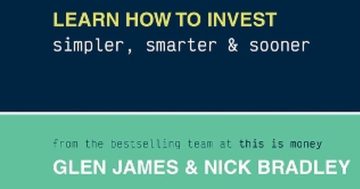Eliza Bavin* shares advice from Brooke Roberts, a highly accomplished woman in finance, who admits she was once a novice too.
 Brooke Roberts was just 20 when she got her first job in finance and has since become the co-CEO of Sharesies, with a whopping $1.9 billion in funds under management.
Brooke Roberts was just 20 when she got her first job in finance and has since become the co-CEO of Sharesies, with a whopping $1.9 billion in funds under management.
Despite her roaring success, Brooke admits she suffered from imposter syndrome – something so many people can relate to.
But Brooke said building confidence was just like any other skill that could be learned.
“Confidence can wax and wane at times.
“I find having a strong support network helps me get through the moments when confidence wanes,” Brooke said.
“As a leader, you can be surrounded by experts but sometimes your judgement is saying something else than what they’re suggesting.
“In those moments, I tend to defer to the expert, and often that’s right, but at times I wish I had followed what I knew to be true.
“I think this is a skill that comes with having confidence in your approach and experience of trusting your judgement.”
Taking the leap
Finance is typically an area dominated by men, and that’s not just in the corporate world.
Brooke is focused on helping more women take the leap to invest their money as well.
“In terms of getting started with investing, when I first started I knew I had a lot to learn – I didn’t come from a family of investors, or really knew anyone that invested,” Brooke said.
“Even when I was learning about investing in my university classes, I was hesitant to take the plunge and invest myself.”
Brooke said the best advice she could give was to just take the plunge and get started, no matter how daunting it may seem.
“I like to remind myself and others that all experts were beginners at some point and you will always be learning,” she said.
How to take charge of your finances
For anyone struggling to get on top of their money, especially at a time when the cost of living is soaring – Brooke has some simple advice.
- Set a goal
First and foremost, you need to have a goal.
“What’s your ambition and how does money play a role in making that a reality?
“Whether it be buying a home, saving for an overseas adventure, retiring early, contributing to your community, buying a car – whatever it is, it’s great to start with what you want to achieve,” she said.
“Goals help you to stay focused and make it easier for new money habits to stick, as you’ll have a greater sense of purpose for what you want to achieve.”
- Make a budget
Once you have a goal in mind, you can start creating a budget.
Brooke said it was important to understand your finances before trying to “fix” them.
“Once you know where your money is going – including fixed outgoings, monthly variables, and big-ticket expenses – you can start mapping out how much you can invest.
“Being realistic in this process will help you to keep consistent and motivated when it comes to putting money aside,” she said.
“Cutting back on non-essential spending can help out.
“But you don’t need to make any hard and fast rules for yourself.
“There’s a common misconception that you need to invest hundreds of dollars to make a difference, but a spare $5 here and there can make a big difference in the long run.”
- Decide where you want your money to go
“Ask yourself how you want to diversify your investments across a number of different companies.
“This may be through products like exchange-traded funds (EFTs),” Brooke said.
“And you may also consider investing in brands you know and love by buying shares in individual companies.
“It’s important to consider how much risk you want to take, what your broader goals are, and what your ‘time horizon’ is.
“For example, if you’re planning to invest for a shorter period of time, you might want to choose lower-risk investments.
“It’s all about what you’re comfortable with.”
- Make it a habit
“Try to keep as consistent as possible – the amount you invest, the day you invest, and the time you take to make your purchases.
“You may already be familiar with dollar-cost averaging but, if not, this is when you invest the same amount on a regular basis no matter the price.
“It can be a great way to average out the short-term ups and downs of the share market,” Brooke said.
“In saying this, you should also listen to your gut.
“If your investments aren’t doing as well, reassess your process to make sure it’s still working for you.”
- Save for a rainy day
“If in a spot where debt isn’t an issue and once you have your budget locked down, consider factoring in an emergency fund, which will act as a buffer if any unexpected expenses come your way,” Brooke said.
“For example, if your car breaks down, would you need to dip into your investments to fix it or do you have spare funds on hand to repair it?
“If you’re more likely to use your investments, it may be worth keeping some cash relief on the side for those moments.”
Brooke said there was no time sensitivity to setting up an emergency fund.
It can be done before investing or even during.
“For those weeks when you have left over money after paying expenses, add this to your emergency fund.
“It could be as simple as investing 10 per cent and saving 90 per cent for emergencies,” she said.
*Eliza Bavin, Personal Finance Editor, is a senior journalist focusing on economics, personal finance and company news amongst other things.
This article first appeared at au.finance.yahoo.com











